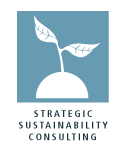VIEWS: Ethical Supply Chain Trends for 2007
The following predictions come from an article in the Responsible Sourcing blog, and while it didn't come straight from my own brain I can't agree more with their forecast.
Trend One: Supplier Ownership
More and more companies are looking to engage suppliers in creating sustainable improvements that will positively impact the lives and conditions of workers. To do so, brands and buyers are promoting the adoption of management systems that will help suppliers run more efficiently as well as manage social compliance issues in a planned and organized manner.
Trend Two: Collaboration
Brand and retailer initiatives continue to emerge with the goal of fostering collaborative approaches to responsible sourcing. Following in the footsteps of the Fair Labor Association and the Ethical Trading Initiative, there is also the Business Social Compliance Initiative in Europe, l'Initiative Clause Sociale in
Trend Three: Convergence
As brands and retailers increasingly sign-up to these initiatives, we can hope for a converging of some of the many standards and programs into a few. The ETI, once thought of as a UK-based initiative, now boasts an increasing number of non-UK members, including the U.S.-based Gap, Inc. Many members of the ETI have chosen to adopt the ETI Base Code as the code of conduct used in their supply chains, in order to use an existing multi-stakeholder code that promotes the use of a common industry code. In fact, the Body Shop forewent their previously developed code to adopt the ETI code and promote the concept of a universal code of conduct. The Gap recently announced their intention to do the same.
The article has more examples (mostly from a
.gif)